Anchor fasteners are hardware devices used to secure or fasten objects to a variety of surfaces, such as walls, ceilings, or floors. These fasteners are particularly useful in situations where the base material is unable to support the weight or load of the object being attached.
Expansion Anchors : These anchors work by expanding against the base material when tightened. Examples include sleeve anchors, wedge anchors, and drop-in anchors.
Toggle Bolts : Toggle bolts consist of a bolt and a spring-loaded wing mechanism. When the bolt is inserted through a hole in the wall, the wings open on the other side to provide stability.
Plastic Anchors : These are simple anchors made of plastic and are often used with screws. They are suitable for lightweight applications in materials like drywall.
Concrete Screws : These screws are specifically designed for use in concrete. They often feature a special thread design that allows them to cut into the concrete material.
Wall Plugs or Molly Bolts : These anchors are commonly used in hollow walls. The anchor expands behind the wall to provide additional support.
Chemical Anchors : Chemical anchors involve using a resin or adhesive to bond the anchor to the base material, providing a strong and permanent connection.
The choice of anchor fastener depends on factors such as the type of material you are attaching to, the weight of the object, and the conditions of the environment. It's important to follow the manufacturer's guidelines and recommendations for proper installation.
When using anchor fasteners, it's crucial to consider the load capacity and follow proper installation procedures to ensure a secure and reliable attachment. Incorrect installation or using the wrong type of anchor can lead to failure and compromise the integrity of the installation. Always consult the product documentation and, if needed, seek professional advice for specific applications.
We offer Stainless Steel Self Tapping Screw in sizes M2 to M8 and 4 mm to 125 mm among other customized options. We source Self Tapping Screw Materials from reputed suppliers to ensure that these materials are of high quality. Our Alloy Steel Self Tapping Screw including Carbon Steel Self Tapping Screw is not only dimensionally accurate but also resistant to corrosion in nature. We also offer the brass alternatives.
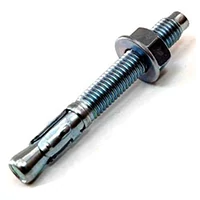
Wedge type anchors from Royal Steel India Fasteners come with different variations in threading throughout its body. The head of the anchor is a round expansion clip with undercut grooves which are permanently affixed to its body. These anchors are made with stainless steel, carbon steel, or alloy steel, making them extremely durable - this makes it suitable for extreme temperature applications, near sea applications. They are also supremely corrosion resistant. To inspect the hold of these anchors, the first step is to measure the diameter of the head and then measure the length of the anchor above the material surface. Subtract this length from the corresponding anchor with its threads. Compare this with the embedment length, and it will determine if the anchor has been installed correctly. These fasteners are mainly used to affix items onto a concrete base. Hence, they come with additional strength for increased load bearing capabilities.
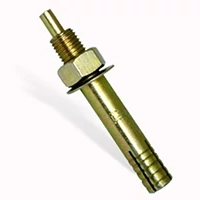
Pin type anchor bolts from Royal Steel India fasteners have interior holes which can extend upto the length of the anchor. The upper portion is where the drive pin is inserted. It is also where the threaded anchor is inserted. To sustain loads, these pin type fasteners use a friction locking principle. The outer surface could be designed with corrugations to resist turning and provide proper balance. They mostly come in the form of a zinc plated dichromate material. Pin type anchor bolts find their use in soft masonry to reduce the effect of vibration and pressure. The most significant advantage of using these bolts is that it can be replaced without affecting the holding strength of the anchor system. Its usage can also be expanded to harder materials like stone, concrete, and bricks without affecting the area surrounding its impact. Applications which require higher pullout values also make use of pin type anchor bolts. At ITA Fasteners, these anchors are manufactured in stainless steel, carbon steel, alloy steel, and other materials.
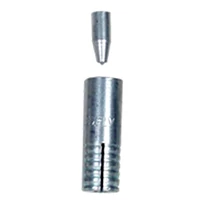
Threaded shield anchors from Royal Steel India Fasteners are used for affixing components in concrete. Therefore, they come with additional strength for better load bearing capabilities. Since there are high chances for the concrete to break on high pinpointed pressure, special tools are required to fasten shield anchors to the. These anchors can be used in applications which the assembly is subjected to tremendous amounts of shear loads, vibrations and side pressure. The different types of shield anchors available are double expansion shield anchors and lag screw expansion shield anchors. If you are unable to gauge the holding strength of an unknown or soft material, you can opt for single expansion shield anchors as they do not damage the surface of operation while also providing a good level of hold. Please use threaded fasteners, preferably hex bolts, with both the types of the shield anchors. It is available in stainless steel, carbon steel, and alloy steel to bear more wear and tear while also making it more corrosion resistant.
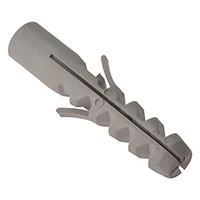
Wall plugs from ITA Fasteners are plastic components which allow for the attachment of screws to walls. It is used in places where the screw has to be attached to brittle objects which would not be able to support the load on the screws. Porous masonry walls are often fitted with wall plugs to support the load on the screws. Although these plugs come in various materials of construction, plastic is often preferred due to its soft nature. The installation of these wall plugs is straightforward and simple. They are inserted loosely into the pilot hole, and a screw is tightened in its center. Once the screw enters the plug, the plastic surrounds it in a tight grip. Another advantage of using these screws is that although they come in various dimensions, they can be accurately used for larger sizes of screws.
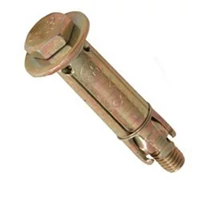
Rawl plugs became popular during the end of the first world war when retrofitting buildings with new electric cables were in demand. At that time, there was a shortage of labour, which forced house owners to do away with traditional methods of electrical fastening and had to make do with rawl anchors which are a type of wall plugs. It turned out to be easy to install and cost effective to purchase these anchors in bulk and use them for large buildings. The British Museum was one of the first prominent organisations which used rawl anchors across their building. The first few rawl anchors were made with tin and asbestos. At ITA Fasteners, we take pride in our delivery excellence and are willing to go to any lengths to ensure that all your fastening needs are taken care of. Irrespective of the scale of your project, we will ensure that you have the fasteners you need to make your venture a grand success. It is available in stainless steel, carbon steel, and alloy steel to bear more wear and tear while also making it more corrosion resistant.
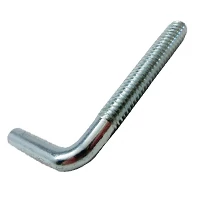
Foundation bolts like the L and J bolts find their application in many industries despite being primarily thought of as the heroes of the construction industry. It is definitely not an exclusive partnership. These bolts are pre-threaded bars which have custom slashings. These bolts come in an extensive range of dimensions starting from ten inches and go up all the way up to eighty inches. At Royal Steel India Fasteners, our L-bolts and J-bolts are widely sought after for our excellence in delivery and promptness in service. It is available in stainless steel, carbon steel, and alloy steel to bear more wear and tear while also making it more corrosion resistant. We also undertake custom orders of any size, to give you the competitive edge you need, to make your project a success. We have years of experience in delivering to the largest names in the industry and are committed to bringing you a lot closer to fastening perfection. Please contact us to know more about our services and how we can help you.
Anchor fasteners are used to connect structural elements of base material to masonry and concrete in buildings and structures. They are installed by first drilling a hole in the base material. The hole is slightly larger than the fastener. Then the anchor is inserted into the hole in the right manner. The distance to which the anchor penetrates the base material is called the embedment depth. There are two types of anchor fasteners namely, mechanical anchor fasteners and chemical anchor fasteners, each of them is discussed below.
Mechanical anchor fasteners use friction to anchor themselves in place. It is used to expand in diameter when it is pushed into the hole. This expansion grips the base material tightly and causes the anchor to be firmly wedged in place. Today, a variety of anchors are available to meet different applications. Mechanical anchors generally fall into two categories, Cast-in-place and Drilled-in anchor fasteners, each of the anchor types is given below.
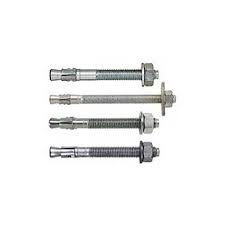
Mechanical expansion anchors – can be loaded immediately after installation. Steel expansion anchors generally have better resistance to heat or fire. They can be further divided into two categories torque-controlled which is inserted into the hole and secured by applying a specified torque to the bolt head or nut with a torque wrench and displacement controlled which consist of an expansion sleeve and a conical expansion plug, whereby the sleeve is internally threaded to accept a threaded element.
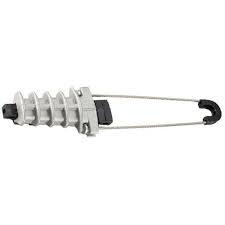
Clamping anchors – used to anchor two or four core insulated bundled cables, all of which have equal cross-sectional areas. The clamp is tightened by bolting and is designed to avoid damage to the cable insulation. The product can be used along with various types of hook bolts.
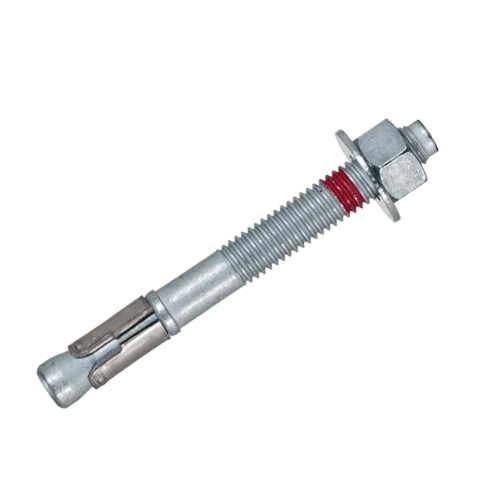
Concrete wedge anchors – work by inserting them into a hole drilled into concrete. The concrete wedge anchor is then expanded, wedging itself securely in the concrete. These are available in zinc plated carbon steel for indoor dry applications, hot-dipped galvanized for most outdoor applications. This anchor helps prevent rust in dry environments; dependable application and maintenance.
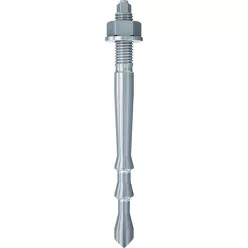
Anchor rods – embedded in concrete foundations to support light poles, traffic signal poles, structural steel columns, highway sign structures. Anchor rods can be cast-in-place or post-installed in an existing concrete slab. These are readily available as stock items or manufactured to meet a variety of ASTM grades and configurations depending on the application.
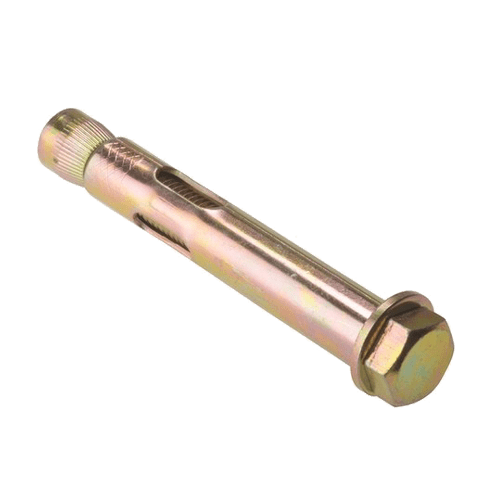
Sleeve anchors – can be used in a variety of base materials, and they are available in a wide variety of diameters, lengths, and head styles. They come preassembled, so they are ready for immediate installation. There are four different head styles, although not all diameters are available in each head style. The head styles are acorn, hex, round, or flat countersunk heads.
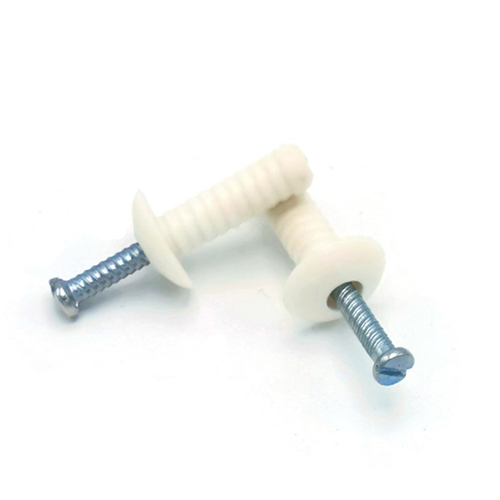
Nail anchors – used for lightweight anchoring into solid masonry and hollow wall applications. The nail in anchor is simple to use and ideal for a variety of applications. It is available with a standard zinc pin or a stainless pin for use in marine applications. It is also available in a wholly metal pin anchor for heavier anchoring applications. Please see attached table on each item for grip range, drill size and hole depth.
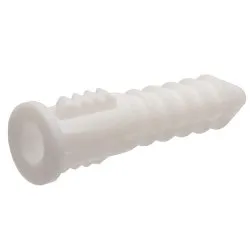
Plastic anchors – used for mounting in porous materials such as concrete, lightweight concrete and brick. Its force-transfer mechanism is similar to mechanical expansion anchors. A torque moment is applied to a screw that is inserted in a plastic sleeve. As the torque is applied the plastic expands the sleeve against the sides of the hole acting as expansion force.
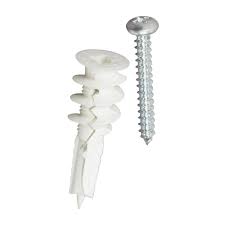
Drywall anchors – fitted for the location you want something hung and there’s not a stud behind it. A drywall anchor goes between the screw and the drywall, biting into the drywall much more effectively than a screw would. Then, you screw in to the anchor, so everything stays in place.
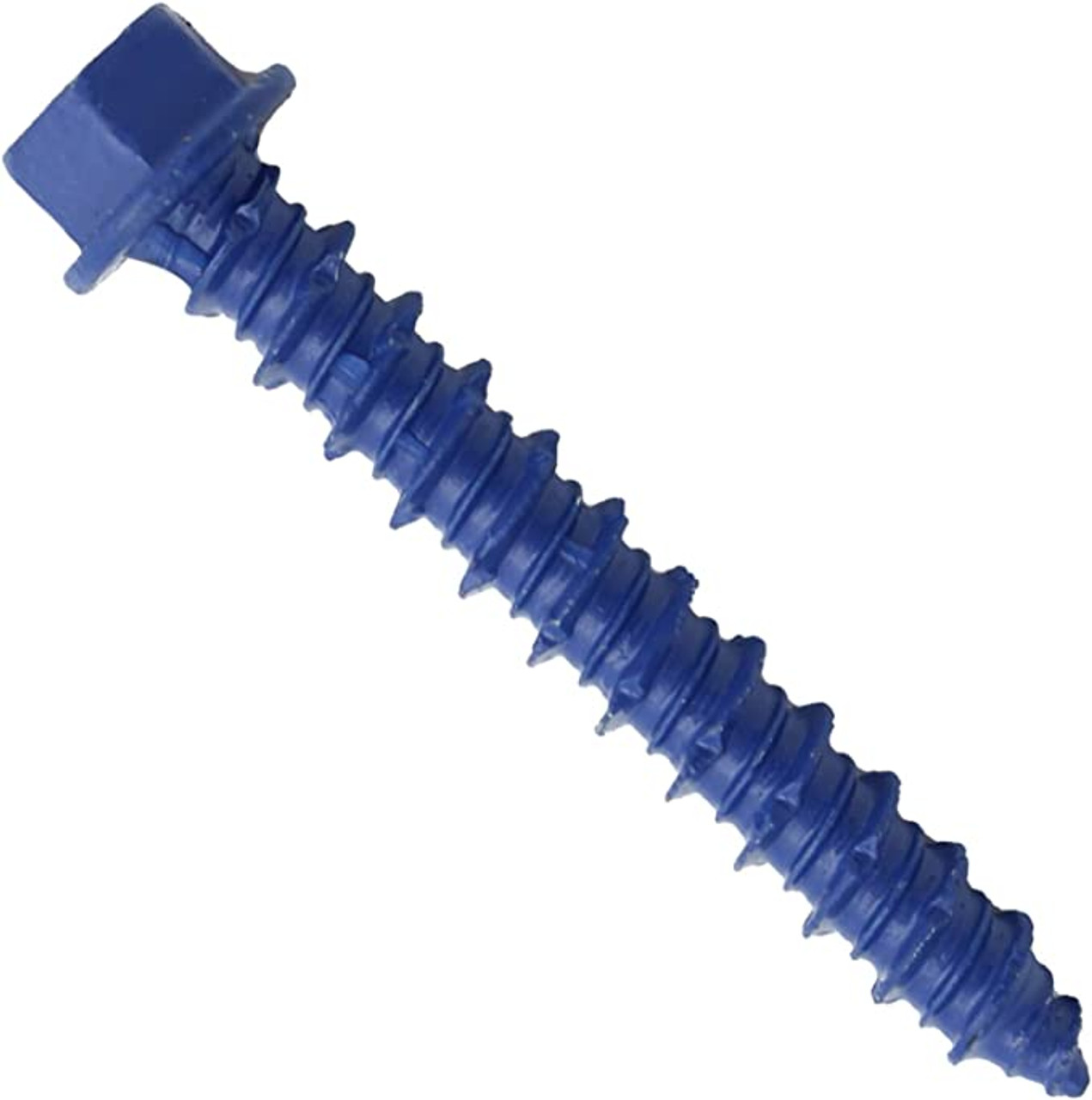
Tapcon anchors – stands for self-tapping (self-threading) concrete screw. This type of fastener requires a pre-drilled hole using a Tapcon drill bit and is then screwed into the hole using a standard hex or phillips bit.
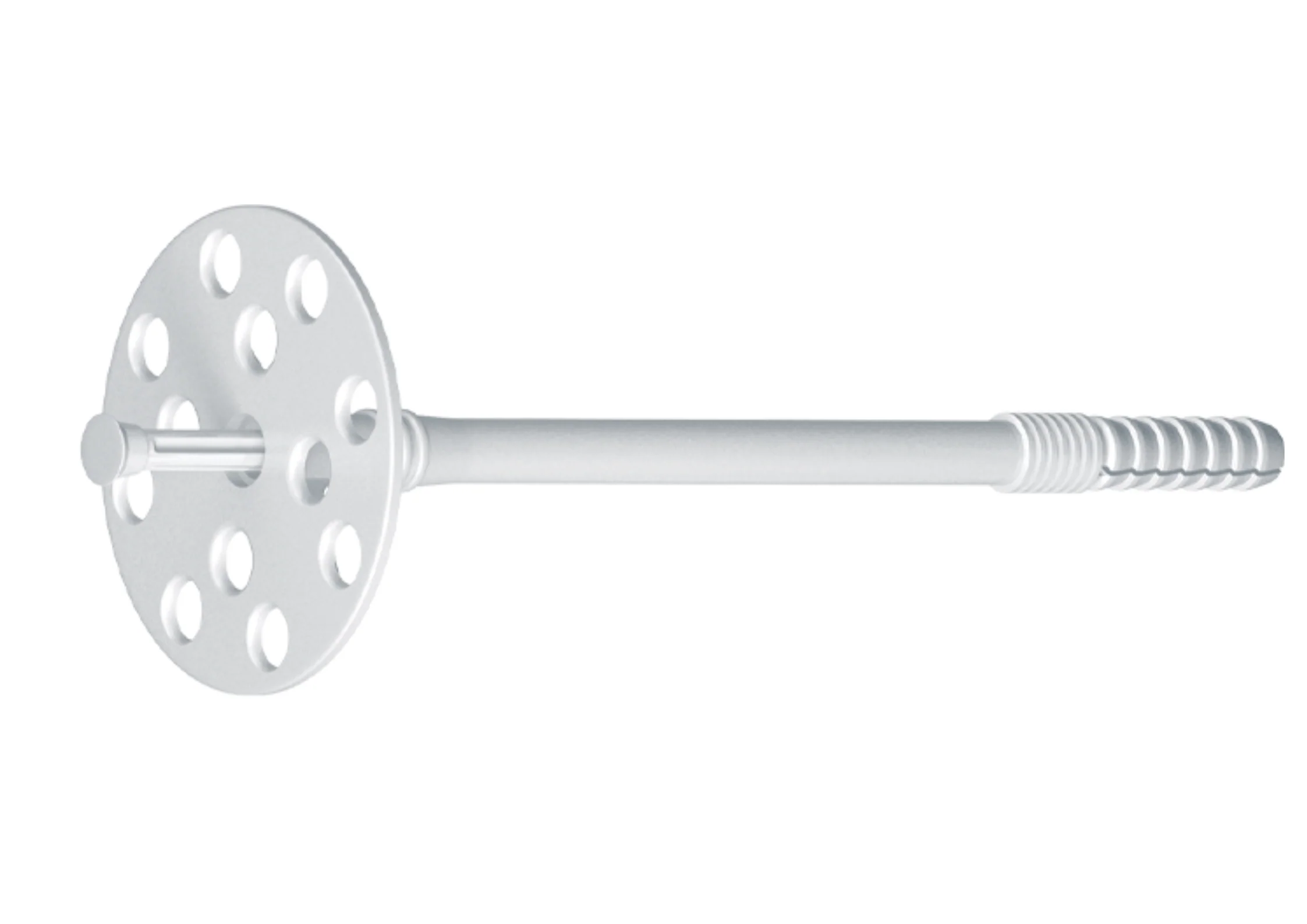
Insulation anchors – plastic or metal fixings with a large circular head. The insulation anchors have slightly different uses depending on their design, so different anchors are used for different types of insulation and substrate. These anchors are used for attaching insulation to a surface that comes in different varieties of Plated Steel, Galvanized Steel and Stainless Steel. When installing insulation, it is important to have the correct fixings to ensure your insulation remains secure, efficient and in place.
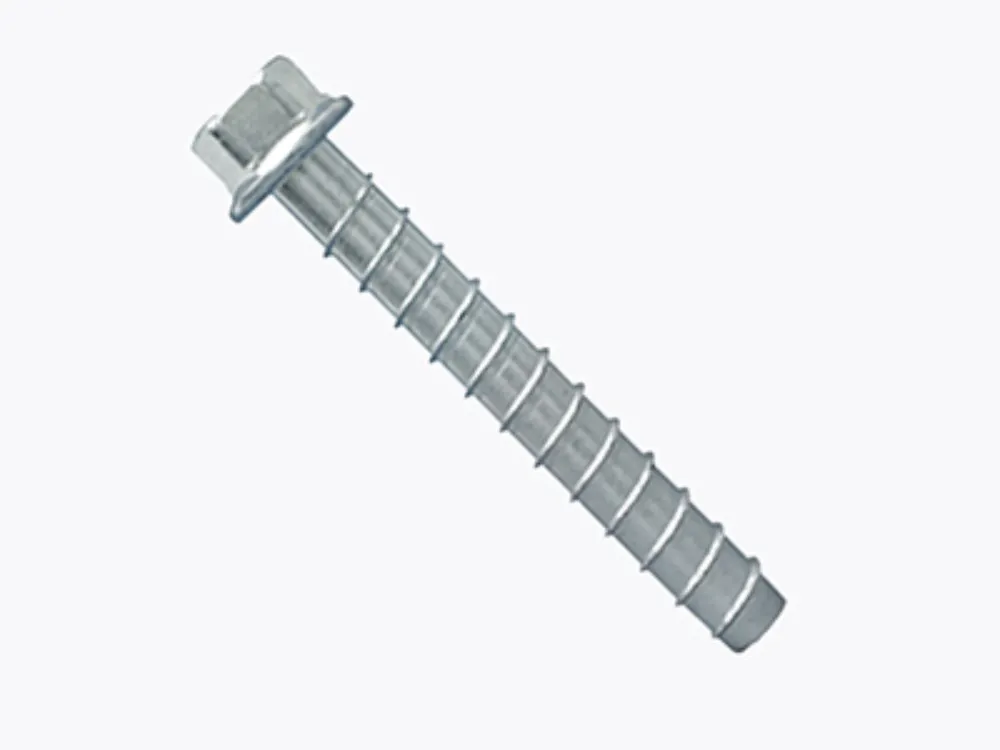
Screw anchors – made from plastic, metal, or fiber, which enable the attachment of screws into brittle materials. Screw anchors are placed into difficult materials to prepare for the insertion of screws.
Chemical anchors are used for fastening to concrete and similar substrates that provide more flexibility than mechanical anchoring. In this type of anchor, a resin is injected into the hole before insertion of the stud. With this, the chemical naturally fills in all irregularities and therefore makes the hole airtight and waterproof. The main importance of chemical anchors and fillings is that they form very strong bonds. These bonds are stronger compared to the base materials. There are different types of chemical anchors used in structures with different specifications as discussed below.
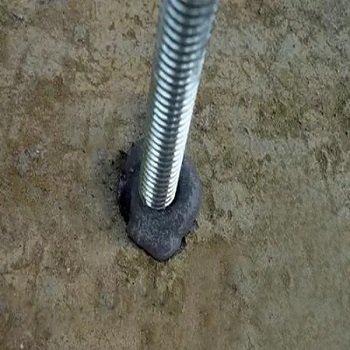
Polyester chemical anchors – a reactive resin used for the production of 2-component injection mortar. They are used for fixing steel dowels, staircases, handrails, building facades, sound barriers, pipelines, awnings, brackets, post-installation rebar connections.
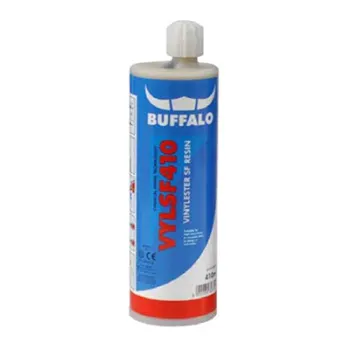
Vinylester chemical anchors – fast curing anchoring resin for quick setting on vertical or overhead installation. It’s also efficient for cold weather with workable hardening time. has an excellent performance in resistance to acid and alkali. It is a good choice for chemical industry installation projects.